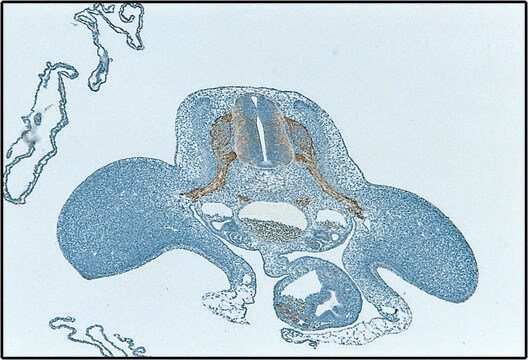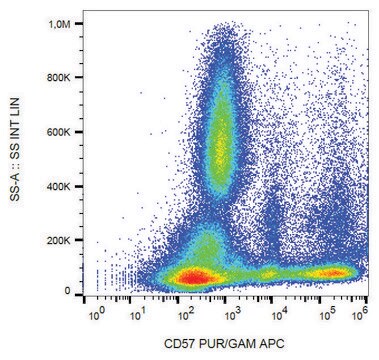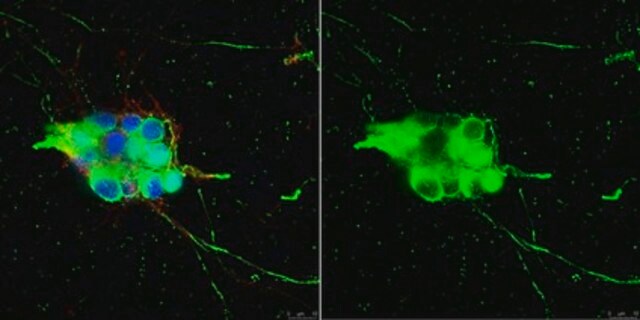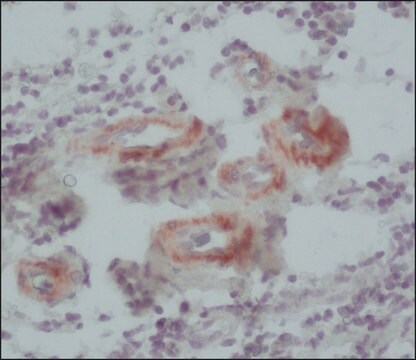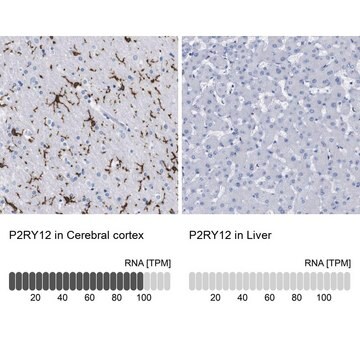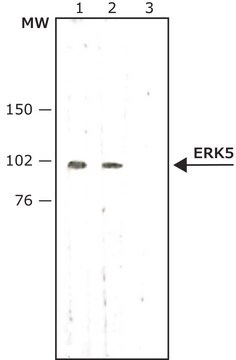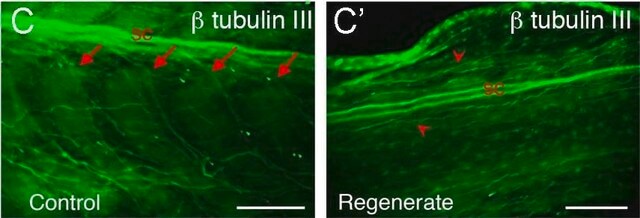C6680
Anti-HNK-1/N-CAM (CD57) antibody, Mouse monoclonal
clone VC1.1, purified from hybridoma cell culture
Synonym(s):
Monoclonal Anti-HNK-1, Hnk-1 Antibody, Hnk-1 Antibody - Monoclonal Anti-HNK-1/N-CAM (CD57) antibody produced in mouse, Anti-CD57, Anti-N-CAM
About This Item
Recommended Products
biological source
mouse
conjugate
unconjugated
antibody form
purified from hybridoma cell culture
antibody product type
primary antibodies
clone
VC1.1, monoclonal
form
buffered aqueous solution
species reactivity
mouse, rat, feline, human
technique(s)
flow cytometry: 5 μL using 1 × 106 cells
immunohistochemistry (formalin-fixed, paraffin-embedded sections): suitable
isotype
IgM
UniProt accession no.
shipped in
wet ice
storage temp.
2-8°C
target post-translational modification
unmodified
Gene Information
human ... B3GAT1(27087)
mouse ... B3gat1(76898)
rat ... B3gat1(117108)
Looking for similar products? Visit Product Comparison Guide
General description
Specificity
5th Workshop: code no. NK 67
Immunogen
Application
- immunohistochemistry
- immunostaining and microscopy
- immunocytochemistry
- immunofluorescence
Biochem/physiol Actions
Target description
Physical form
Disclaimer
Not finding the right product?
Try our Product Selector Tool.
Storage Class Code
10 - Combustible liquids
WGK
nwg
Flash Point(F)
Not applicable
Flash Point(C)
Not applicable
Certificates of Analysis (COA)
Search for Certificates of Analysis (COA) by entering the products Lot/Batch Number. Lot and Batch Numbers can be found on a product’s label following the words ‘Lot’ or ‘Batch’.
Already Own This Product?
Find documentation for the products that you have recently purchased in the Document Library.
Our team of scientists has experience in all areas of research including Life Science, Material Science, Chemical Synthesis, Chromatography, Analytical and many others.
Contact Technical Service